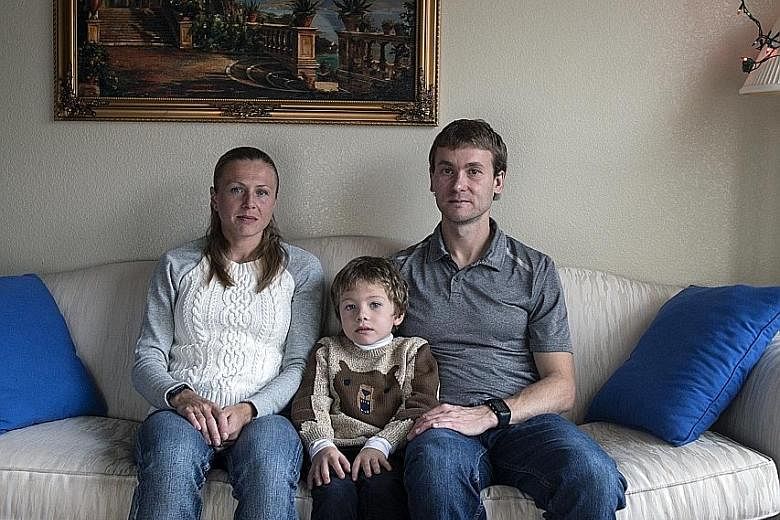NEW YORK • The boy and his parents blended in.
Last month, they competed in a set of holiday running races in which some participants wore reindeer onesies.
Later that weekend, they stopped at a dollar store to buy Secret Santa gifts, then sneaked them onto a neighbour's porch.
"We are just like any middle-class American family," Vitaly Stepanov said of life with his wife, Yuliya, and their son, Robert. "Well, except for the whistle-blower part."
Oh, yes. That. The Stepanovs, in truth, are not a typical family at all. Yuliya, 33, once was a top middle-distance runner on Russia's national team.
Vitaly, 37, worked for the Russian Anti-Doping Agency. Now living in America, they do their best to keep a low profile in a city they would rather not name.
They have a complicated past.
The Stepanovs were the whistle-blowers who originally exposed Russia's state-sponsored doping programme, before the 2016 Olympic Games.
The information they provided, including secret recordings Yuliya made of coaches and athletes, led to Russia being barred from the track and field events at the Rio Games.
It also paved the way for Grigory Rodchenkov, the former head of the Moscow anti-doping laboratory, to divulge his role in hiding the failed doping tests of Russian athletes at the 2014 Winter Games in Sochi.
The consequences of the combined disclosures still reverberate. Russia's continuing efforts to cover up the scandal recently resulted in a new, stricter four-year ban from international sports.
"As whistle-blowers, we never imagined things going this far, and it's surreal that the cheats won't be welcomed at the Olympic Games," Vitaly said. "Finally, after so many half-measures, something real is being done to Russia as a punishment."
But the Stepanovs have paid a price, too. In 2014, two days before a German documentary detailed their doping accusations, the couple left Russia with four suitcases and their infant son.
They moved to Germany, fleeing into an uncertain future.
In the years since, Yuliya's former teammates have labelled them as traitors and Russian President Vladimir Putin has called her "Judas".
Meanwhile, after the promise of a job did not materialise, the Stepanovs moved to the United States in 2015 and, the following year, applied for asylum to remain in the country.
But that application is still pending. For now, after moving at least six times since leaving Russia, they live in a sort of stateless limbo.
According to two people with knowledge of the situation, they have been cooperating with authorities investigating fraud and conspiracy relating to Russian doping.
As for those back in Russia who have verbally attacked her and her husband, Yuliya was straightforward in her response.
"They hate us for telling the truth,'' she said. "I've seen comments on the internet like, 'We should kill those traitors, we should go poison them.' But we feel safe here. We want to stay here.''
NY TIMES

